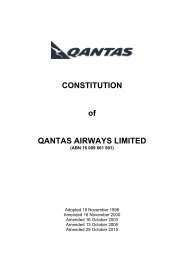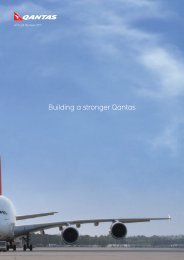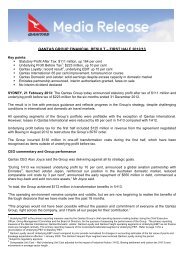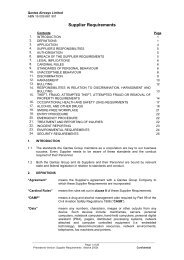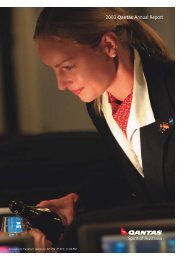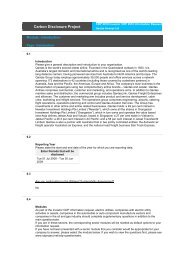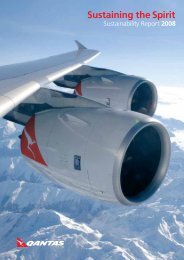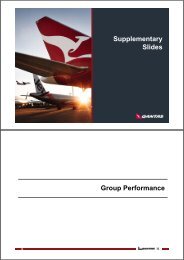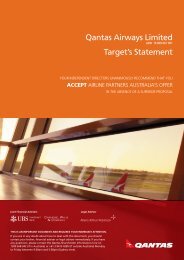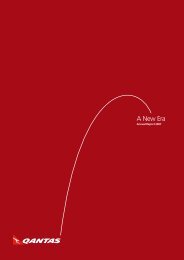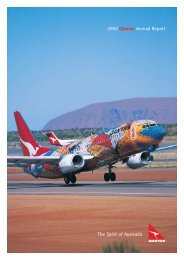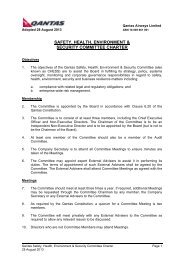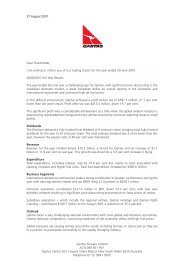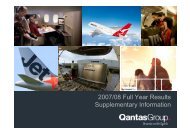radio - Qantas
radio - Qantas
radio - Qantas
Create successful ePaper yourself
Turn your PDF publications into a flip-book with our unique Google optimized e-Paper software.
Talking Business with ITA BUTTROSE<br />
16<br />
James<br />
Bradfield Moody<br />
service not the product, and if you can actually try to identify<br />
what the service is and sell that rather than the product,<br />
then you, as the service provider, make all the money out of<br />
reducing the waste consumption. I’ll give you an example,<br />
there’s companies now which are becoming energy service<br />
providers and they’ve realised that people don’t really want<br />
joules of electricity, what they want is light or they want heat<br />
or they want mobility. So there’s companies overseas that are<br />
actually selling heat, and so they’ll sign a contract with you<br />
for quite a long time to keep your house between 23 and 25<br />
degrees Celsius, which is great, that’s the service that you<br />
want. Then they’ll come in and they’ll put in insulation and<br />
they’ll check the cracks under the doors, they’ll make your<br />
house as efficient as possible, because they realise that it’s<br />
suddenly in their interest to deliver that service – the keeping<br />
the house warm or cool – for the least amount of resources<br />
possible, and that’s a way of basically extracting value and<br />
opportunity, and business opportunity, from the fact that<br />
there’s limited resources.<br />
IB But it requires a whole new way of thinking doesn’t it<br />
and is it driven by the fact that we’re going to have less<br />
resources in the world?<br />
JM It’s driven by that, it’s driven by a lot of things. One is<br />
the fact that we are seeing a reduction in the availability of<br />
some resources, whether they’re water or some of mineral<br />
resources, and in fact things like phosphorus as well, food<br />
security becomes an issue. It’s also driven by the fact that<br />
we see a lot of waste, and build-ups of waste products<br />
can sometimes cause environmental damage, and they’re<br />
called externalities, things where you’re having a value but<br />
you’re not paying for the full costs of the things that you<br />
do. Whether it’s putting pollutants into a river causing fish<br />
to die which causes a fishing village to lose their income,<br />
they are sorts of externalities. The third thing that’s actually<br />
happening, and it’s a technology trend, is we’re actually<br />
measuring and mapping these resources in ways that we’ve<br />
never been able to do. In fact, our third rule of thumb in<br />
the book is about the convergence of digital and natural<br />
and that, as we get more senses, as technology computing<br />
<strong>radio</strong><br />
QANTAS INFLIGHT ENTERTAINMENT | JUNE 2010



